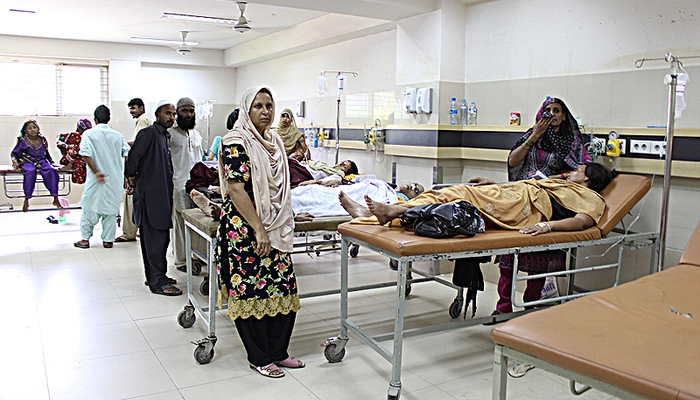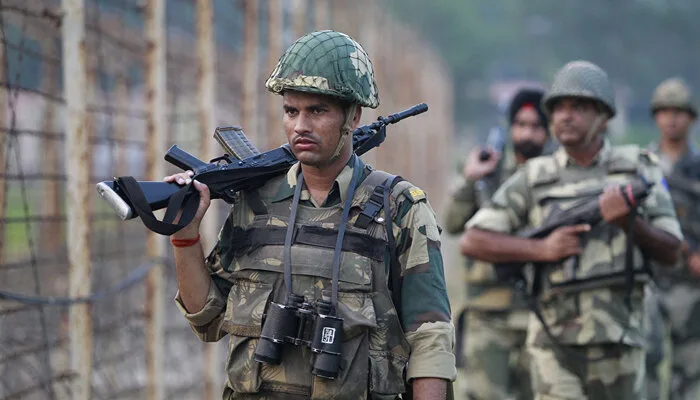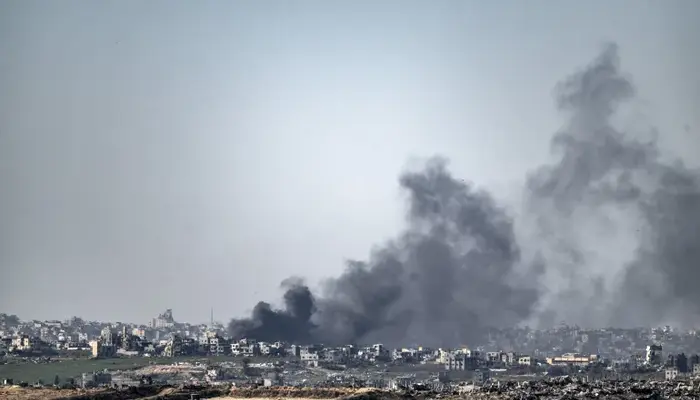
Chikungunya cases are steadily rising in Karachi, with a surge in patients seeking treatment for bone and joint pain, according to reports on Tuesday. The mosquito-borne viral disease has led to an increased number of people visiting physiotherapy clinics for relief from severe pain.
Dr. Fazilah, a physiotherapist in Karachi, noted that many individuals suffering from chikungunya-related joint and body pain are benefiting from physiotherapy treatments. She highlighted that physiotherapy has been essential in alleviating the discomfort caused by the disease, particularly in cases of severe pain and inflammation.
Local hospitals, including the Police Hospital, have also reported a noticeable rise in cases. Dozens of new patients are being diagnosed each month, seeking treatment for common symptoms like muscle pain, fatigue, and inflammation. These symptoms have become widespread as the chikungunya virus continues to affect more individuals across the city.
In the last five months, Karachi has experienced a significant increase in chikungunya cases. Between May and September, 140 individuals were confirmed to have contracted the disease. During this period, a total of 211 suspected cases were reported, and 189 individuals were screened. Out of those tested, 140 cases were confirmed positive, reflecting a growing concern for public health.
Read: Pakistan Reports Two New Polio Cases
The rise in cases has prompted action from various health authorities. The National Institute of Health (NIH) recently issued an advisory aimed at controlling and preventing the spread of chikungunya. The advisory noted that chikungunya, a viral disease similar to dengue fever, is transmitted by Aedes mosquitoes, the same species responsible for spreading dengue. It emphasized the importance of immediate measures to curb the outbreak.
Ministry of Health Urges Swift Action
In response, the Ministry of Health has directed local authorities to take swift action to combat the chikungunya outbreak. Preventive measures, such as eliminating mosquito breeding sites and increasing public awareness, are being encouraged. The ministry’s advisory stressed the need for enhanced surveillance and monitoring, especially in high-risk areas like Karachi, where the number of cases continues to climb.
Physiotherapy clinics have become a vital resource for those suffering from the disease’s debilitating symptoms. Many patients experiencing intense joint and bone pain have turned to these clinics for relief. According to healthcare providers, early intervention through physiotherapy can significantly improve recovery and reduce long-term discomfort associated with chikungunya.
The increase in chikungunya cases in Karachi has sparked concern among residents, especially as the disease shares similarities with other mosquito-borne illnesses, such as dengue fever. The government is urging the public to remain vigilant and take precautionary steps, including using mosquito repellents, wearing protective clothing, and ensuring that standing water is removed from residential areas.
As the situation unfolds, health authorities are closely monitoring the spread of the virus and working to contain further outbreaks. The collaborative efforts between hospitals, physiotherapy clinics, and public health institutions are aimed at reducing the impact of chikungunya on Karachi’s population.
In conclusion, the steady rise in chikungunya cases in Karachi is a growing public health concern. Efforts are underway to manage the outbreak, and physiotherapy treatments are proving to be a crucial support for patients experiencing severe joint pain. However, the situation requires continued vigilance and action from both the public and authorities to prevent further spread of the disease.
Follow us on Google News, Instagram, YouTube, Facebook,Whats App, and TikTok for latest updates












